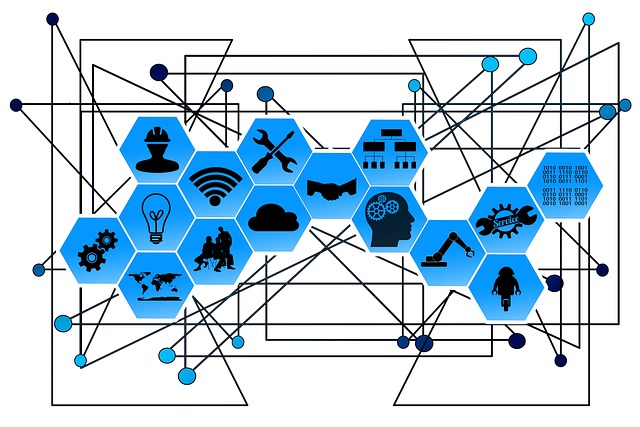Section 1: The Rise of AI Technology in the Workplace
In recent years, the business landscape has been rapidly evolving with the introduction of new technologies. One of the most prominent and game-changing innovations has been the advancement of Artificial Intelligence (AI). AI technology has revolutionized the way businesses operate, providing them with the ability to automate processes, make data-driven decisions, and improve overall productivity. From small startups to large corporations, companies across various industries are embracing AI and reaping its benefits. In this article, we will explore the latest developments in AI technology and its impact on workplace productivity.
Section 2: Advancements in AI Technology and Their Practical Applications
AI technology has come a long way since its inception. With the help of machine learning, natural language processing, and deep learning algorithms, AI systems are now capable of learning, adapting, and making decisions on their own. This has opened up a world of possibilities for businesses, allowing them to automate mundane tasks and focus on more strategic initiatives. One of the most significant advancements in AI technology is the rise of chatbots. These AI-powered virtual assistants are transforming customer service by providing 24/7 support and handling routine inquiries, freeing up human agents to focus on more complex issues. Companies like Bank of America and Sephora have successfully implemented chatbots, resulting in improved customer satisfaction and cost savings.
Another practical application of AI technology is in the field of data analysis. With the exponential growth of data, businesses are struggling to make sense of it all. AI-powered analytics tools can quickly process vast amounts of data and provide valuable insights that can help companies make informed decisions. For example, Coca-Cola has leveraged AI technology to analyze consumer data and personalize their marketing campaigns. This has not only increased their sales but also improved their brand loyalty. Similarly, Netflix uses AI algorithms to analyze user data and recommend personalized content, leading to a more engaging user experience.
Section 3: The Benefits and Challenges of Integrating AI into Business Operations
The integration of AI technology into business operations has numerous benefits, including increased efficiency, improved decision-making, and cost savings. By automating repetitive tasks, AI systems can significantly reduce the time and effort required to complete them. This allows employees to focus on more critical tasks that require human skills, such as creativity and problem-solving. Moreover, AI-powered systems can analyze vast amounts of data and provide valuable insights, enabling businesses to make data-driven decisions. This not only reduces the risk of human error but also leads to more accurate and efficient decision-making.
However, with these benefits come challenges that businesses must address when integrating AI into their operations. One of the main concerns is the potential job displacement caused by automation. As AI systems can perform tasks faster and more accurately than humans, there is a fear that many jobs may become obsolete. This has led to a debate about the ethical implications of AI and the need for companies to reskill and upskill their employees to prepare them for the future of work. Another challenge is the potential bias in AI algorithms. As these systems are trained on existing data, they may reflect the biases present in that data. This can lead to discriminatory outcomes, which can have serious consequences for businesses. To overcome this challenge, it is essential for companies to ensure diversity and inclusivity in their data sets and continuously monitor and improve their AI systems.
Section 4: Future Trends and Opportunities for Growth
The advancements in AI technology are not showing any signs of slowing down. In fact, the market for AI is expected to reach $190 billion by 2025. With the rapid development of new technologies such as 5G, the Internet of Things (IoT), and edge computing, the potential for AI is limitless. One of the most exciting trends is the integration of AI with IoT devices. This will enable businesses to collect real-time data and use AI algorithms to make immediate decisions, leading to increased efficiency and productivity. Additionally, the use of AI in healthcare is also on the rise, with the potential to improve patient care and outcomes. AI-powered systems can analyze medical data, assist in diagnosis, and even predict potential health issues, allowing for early intervention.
Moreover, AI is also creating new opportunities for businesses to enter new markets and expand their offerings. For example, companies like Amazon and Google are using AI to develop self-driving cars, while others are exploring the use of AI in space exploration. The possibilities are endless, and businesses that embrace AI will have a competitive advantage in the market.
Conclusion:
In conclusion, AI technology is transforming the business landscape, and its impact on workplace productivity cannot be ignored. With advancements in chatbots, data analysis, and other practical applications, businesses can automate processes, make data-driven decisions, and improve overall efficiency. However, the integration of AI also brings challenges such as job displacement and potential bias, which must be addressed. As we look to the future, it is evident that AI will continue to evolve and create new opportunities for growth, making it essential for businesses to embrace this technology to stay ahead in the ever-changing business landscape.

